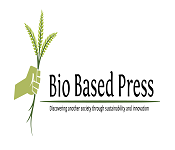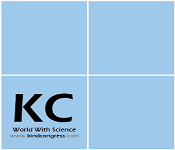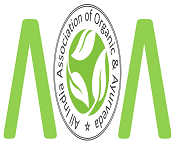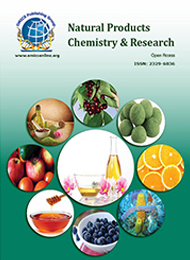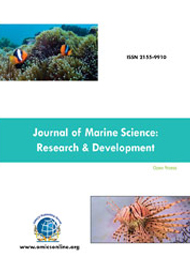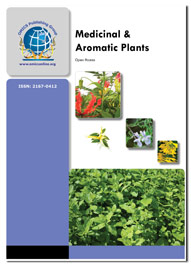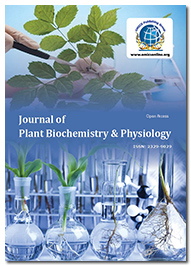Theme: Exploring Nature as a Natural Medicine
Natural Medicine 2018
ConferenceSeries Ltd is very delighted to invite you all to the "5th World Congress on Natural products, Medicinal plants and Traditional Medicines" (Natural Medicine 2018) scheduled on November 05-06, 2018 at Singapore. We are progressively working for the initiation of new world, perspectives and views in the field of pharmaceutical Sciences. ConferenceSeries Ltd is providing a great platform for thousands of pharmacists meet, learn, share and exchange views. We are concentrating on a view that everyone should gain from the conference. So, we are organizing plenary sessions, poster exhibitions and section programs, workshops at the conference.
ConferenceSeries Ltd is a world class conference organizer, which have highly talented conference organizers around the globe. We have 70,000 editorial board members for ConferenceSeries Ltd journals and also 600+ Scientific conferences. We publish more than 700+ Open access journals for which we have more than 1 million readers and we strictly follow 21 day rapid review process. We endeavor to support and organize a variety of conferences throughout the year as educational opportunities to update knowledge and skills. To know more about the conference series visit: http://www.conferenceseries.com/
Natural Medicine 2018 is supported with related journals and their editorial board members which provide a chance of meeting them, along with experts in Herbal Medicine, Traditional Medicines and Plant biologist.
Natural Medicine 2018 will schedule and coordinate all meetings with our Editorial Board Members and other experts in the Natural Medicines, Traditional Medicines & Natural Products fields across the world. The Natural Medicine conference scientific program paves a way to gather latest information through the research talks and presentations and put forward many thought provoking strategies in Natural Medicine Conference
The global market for botanical and plant-derived drugs was valued at $23.2 billion in 2013 and $24.4 billion in 2014. This total market is expected to reach $25.6 billion in 2015 and nearly $35.4 billion in 2020, with a compound annual growth rate (CAGR) of 6.6% from 2015 to 2020.
ConferenceSeries Ltd is very delighted to invite you all to the "5th World Congress on Natural products, Medicinal plants and Traditional Medicines" (Natural Medicine 2018) scheduled on November 05-06, 2018, Singapore. ConferenceSeries Ltd organizes a conference series of 3000+ Global Events with over 600+ Conferences, 1200+ Symposiums and 1200+ Workshops in USA, Europe & Asia with support from 1000 more scientific societies and publishes 700+ Open access journals which contains over 30000 eminent personalities, reputed scientists as editorial board members.
Track 1: Natural Medicines
Naturopathy is an Alternative treatment method it includes Herbal treatment, Diet therapy and Homeopathy. Natural treatments re-establish the body's inborn capacity to heal itself without the adverse impacts of conventional drug. Naturopathy is distinct primary health care system that mixes cutting edge logical information with customary and normal types of prescription. Naturopathic Medicine emphasizes all encompassing, preventive care by concentrating on prevention, optimal health and wellness.
Complementary and alternative medicine includes practices such as massage, acupuncture, tai chi, and drinking green tea. Complementary and alternative medicine (CAM) is the term for medical products and practices that are not part of standard medical care.
Related Conferences
3rd International Conference on Plant Science & Physiology, May 21-22, 2018, Osaka, Japan; 8th World Congress on Plant Science and Molecular Biology, July 9-10, 2018 Sydney, Australia; 8th World Congress on Plant Genomics and Agricultural Sciences, August 20-21, 2018 Tokyo, Japan; Global Ethnomedicine and Ethnopharmacology Conference, August 20-21, 2018 Tokyo, Japan; 4th International Conference and Exhibition on Marine Drugs & Natural Products, June 11-13, 2018 Rome, Italy; Advances in Phytochemical Analysis, July 2-5, 2018, United Kingdom; 6th World Congress on Medicinal and Aromatic Plants, May 1, 2019, Turkey; Southwest Conference on Botanical Medicine, April 6- 8, 2018, Arizona, USA; Medicines from the Earth Herb Symposium, June 1 – 4, 2018, North Carolina, USA; International Conference on Traditional, Complementary and Alternative Medicine(s): History vs. Modernity, March 1-2, 2018, London, UK.
Related Societies
Australian Society of Plant Scientists (ASPS), American Society of Plant Biologists (ASPB), European Plant Science Organisation (EPSO), International Crop Science Society (ICSS), International Society for Horticultural Science (ISHS)
Track 2: Natural Products
Natural products (secondary metabolites) have been the most successful source of leads for potential drug discovery. Natural products have been well documented for their medicinal uses for thousands of years. Plants have evolved and adapted over millions of years to withstand bacteria, insects, fungi and weather to produce unique, structurally diverse secondary metabolites. Their ethno pharmacological properties have been used as a primary source of medicines for early drug discovery. Macro and micro fungi have been part of human life for thousands of years. They were used as food (mushrooms), in preparation of alcoholic beverages (yeasts), medication in traditional medicine and for cultural purposes.
Related Confernces
12th International Conference on Agriculture and Horticulture, July 09-10, 2018 Sydney, Australia; 9th International Conference and Exhibition on Chinese Medicine, Ayurveda & Acupuncture, March 12-14, 2018 Barcelona, Spain; 10th World Congress on Medicinal Chemistry and Drug Design, June 14-15, 2018 Barcelona, Spain; International Conference on Alternative Medicine, February 26-28, 2018, London UK; 6th Edition of International Conference on Pharmacognosy and Medicinal Plants, April 16-17, 2018, Amsterdam, Netherlands; Plant Biology Europe 2018, June 18-21, 2018, Copenhagen, Denmark; Plant Molecular Biology, June 10-15, 2018, New Hampshire, USA; African Crop Science Society Conference, January 15-18, 2018, Cape Town, South Africa; 2nd Annual Phenome 2018, February 14-17, 2018, Arizona, USA; 2nd Asia-Pacific Plant Phenotyping Conference, March 23-25, 2018, Nanjing, China
Related Societies
Botanical Society of China (BSC), Chinese Society of Plant Biology (CSPB), Crop Science Society of China (CSSC), Indian Society of Plant Physiology (ISPP), Japanese Society for Plant Cell and Molecular Biology(JSPCMB)
Track 3: Traditional and Alternative Medicines
Traditional Medicine is a system of primary health care that includes acupuncture, Chinese herbal medicine, remedial massage, exercise and breathing therapy and diet and lifestyle advice. In Australia, the most popular forms of TCM health care are acupuncture and Herbal Medicine. It has an uninterrupted history of development in China and other parts of East Asia dating back thousands of years.
Alternative medicines utilization started in the mid of nineteenth century. Amid this time, alternative medical practitioners picked up prevalence and started to contend with conventional medical experts. Alternative medicine provides great healing effects as scientific medicine. Alternative medicine may treat as complimentary methods that improve the efficacy of treatment. Due to its healing effects Alternative Medicine usage is increasing more frequently.
Traditional Chinese Medicine (TCM) market is rapidly developing since later of 1990s. In 2010, the output value of TCM amounted to RMB317.2 billion (about €36.8 billion), which increased 24%. The net yield and profits of TCM production is much higher than the average for the country's medical industry. The total TCM market in China will rise to €96,2 billion in 2025.
The report of this is expected to generate a revenue of USD 196.87 billion by 2025, as per the latest report by Grand View Research, Inc. Factors such as the increase in adoption of alternative medicine by people combined with the government initiatives of a number of key countries to enhance reach is expected to help in expansion revenue generation avenues.
Related Conferences
3rd International Conference on Plant Science & Physiology, May 21-22, 2018, Osaka, Japan; 8th World Congress on Plant Science and Molecular Biology, July 9-10, 2018 Sydney, Australia; 8th World Congress on Plant Genomics and Agricultural Sciences, August 20-21, 2018 Tokyo, Japan; Global Ethnomedicine and Ethnopharmacology Conference, August 20-21, 2018 Tokyo, Japan; 4th International Conference and Exhibition on Marine Drugs & Natural Products, June 11-13, 2018 Rome, Italy; Annual plant biology meeting, July 14-18, 2018, Montreal, Canada; International Association for Plant Biotechnology Congress, August 19-24, 2018, Dublin, Ireland; 20th International Conference on Agriculture and Biotechnology, November 5-6, 2018, Cape Town, South Africa; Reliable Plant Conference & Exhibition 2018, April 17-19, 2018, Indianapolis, Indiana; Plant Signalling: Molecular Pathways and Network Integration, January 21-24, 2018, California, USA
Related Societies
Japanese Society of Plant Physiologists (JSPP), American Society of Plant Biologists (ASPB), Australian Society of Plant Scientists (ASPS), Argentinean Society of Plant Physiology (SAFV), American Society of Agronomy (ASA)
Track 4: Herbal Drugs and Formulations
Herbals have been utilized for health and restorative purposes for a few a great many years, majority of people still using herbal medicine to meet their wellbeing needs. Therapeutic plants are critical hotspots for pharmaceutical manufacturing. Medicinal plants and herbal medicines having most elevated market in Asia since decade, therapeutic plants can be utilized as food to meet every day necessities of body.
The art or practice of using herbs and herbal remedies to maintain health and to prevent, alleviate, or cure disease—called also herbalism. They are used for treating anxiety, depression, Healing, ache and many more. There are different types of herbs like Anti Inflammatory Herbs, Smoking Herbs, Fertility Herbs, Adopt genic herbs, Healing Herbs. There are also different types of herbal products used in various forms some of them are Herbal Tea, Herbal Hair Products, Herbal Cigarettes, Herbal Antibiotics, and Herbal Toothpastes.
With the high increase in the use of herbal medicines worldwide and the rapid expansion of the global market for these products, the safety and quality of medicinal plant materials and herbal medicinal products have become a major concern for health authorities, pharmaceutical industries and the public. The global botanical and plant-derived drug market was valued at $21.4 billion in 2011 and should reach $22.1 billion in 2012. Total market value is expected to reach $26.6 billion in 2017 after increasing at a five-year compound annual growth rate (CAGR) of 3.7%.
Related Conferences
8th World Congress on Plant Genomics and Agricultural Sciences, August 20-21, 2018 Tokyo, Japan; Global Ethnomedicine and Ethnopharmacology Conference, August 20-21, 2018 Tokyo, Japan; 4th International Conference and Exhibition on Marine Drugs & Natural Products, June 11-13, 2018 Rome, Italy; 12th International Conference on Agriculture and Horticulture, July 09-10, 2018 Sydney, Australia; 9th International Conference and Exhibition on Chinese Medicine, Ayurveda & Acupuncture, March 12-14, 2018 Barcelona, Spain; Medicines from the Earth Herb Symposium, June 1 – 4, 2018, North Carolina, USA; International Conference on Traditional, Complementary and Alternative Medicine(s): History vs. Modernity, March 1-2, 2018, London, UK; Plant Biology Europe 2018, June 18-21, 2018, Copenhagen, Denmark; Plant Molecular Biology, June 10-15, 2018, New Hampshire, USA; African Crop Science Society Conference, January 15-18, 2018, Cape Town, South Africa
Related Societies
Australian Society of Plant Scientists(ASPS), Argentinean Society of Plant Physiology (SAFV), American Society of Agronomy (ASA), African Crop Science Society (ACSS), Brazilian Society of Plant Physiology (SBFV)
Track 5: Ayurvedic Medicines
Ayurveda is an ancient Alternative healthcare system of natural and holistic medicine, it is created from Vedas. All Ayurveda writings are composed in Sanskrit, When translated from Sanskrit, Ayurveda means “the science of life” (the Sanskrit root ayur means “longevity” or “life” and veda means “science”). Ayurveda analyse the disease by heartbeat, tongue, discourse, touch, appearance, vision, pee, stool.
Ayurvedic physicians prescribe individualized treatments, including compounds of herbs or proprietary ingredients, and diet, exercise, and lifestyle recommendations. Ayurvedic products are made either of herbs only or a combination of herbs, metals, minerals, or other materials in an Ayurvedic practice called rasa shastra
Related Conferences
4th International Conference and Exhibition on Marine Drugs & Natural Products, June 11-13, 2018 Rome, Italy; 12th International Conference on Agriculture and Horticulture, July 09-10, 2018 Sydney, Australia; 9th International Conference and Exhibition on Chinese Medicine, Ayurveda & Acupuncture, March 12-14, 2018 Barcelona, Spain; 10th World Congress on Medicinal Chemistry and Drug Design, June 14-15, 2018 Barcelona, Spain; International Conference on Alternative Medicine, February 26-28, 2018, London UK; Plant Biology Europe 2018, June18-21, 2018, Copenhagen, Denmark; International Conference on Arabidopsis Research, June 25-29, 2018, Turku, Finland; Annual plant biology meeting, July 14-18, 2018, Montreal, Canada; International Association for Plant Biotechnology Congress, August 19-24, 2018, Dublin, Ireland; 20th International Conference on Agriculture and Biotechnology, November 5-6, 2018, Cape Town, South Africa; Reliable Plant Conference & Exhibition 2018, April 17-19, 2018, Indianapolis, Indiana.
Related Societies
Argentinean Society of Plant Physiology (SAFV), American Society of Agronomy (ASA), African Crop Science Society (ACSS), Brazilian Society of Plant Physiology (SBFV), Canadian Society of Plant Biologists(CSPB).
Track 6: Homeopathic Medicines
Homeopathy is a system of medicine, which believes in a specialized method of treatment of curing diseases by administration of potency drugs, which have been experimentally proved to possess the power of producing similar artificial systems on human beings.
Homeopathic remedies are derived from substances that come from plants, minerals, or animals, such as red onion, arnica (mountain herb), crushed whole bees, white arsenic, poison ivy, belladonna (deadly nightshade), and stinging nettle. Homeopathic remedies are often formulated as sugar pellets to be placed under the tongue; they may also be in other forms, such as ointments, gels, drops, creams, and tablets. Treatments are “individualized” or tailored to each person—it is not uncommon for different people with the same condition to receive different treatments.
Related Conferences
3rd International Conference on Plant Science & Physiology, May 21-22, 2018, Osaka, Japan; 8th World Congress on Plant Science and Molecular Biology, July 9-10, 2018 Sydney, Australia; 8th World Congress on Plant Genomics and Agricultural Sciences, August 20-21, 2018 Tokyo, Japan; Global Ethnomedicine and Ethnopharmacology Conference, August 20-21, 2018 Tokyo, Japan; 4th International Conference and Exhibition on Marine Drugs & Natural Products, June 11-13, 2018 Rome, Italy; Annual plant biology meeting, July 14-18, 2018, Montreal, Canada; International Association for Plant Biotechnology Congress, August 19-24, 2018, Dublin, Ireland; 20th International Conference on Agriculture and Biotechnology, November 5-6, 2018, Cape Town, South Africa; Reliable Plant Conference & Exhibition 2018, April 17-19, 2018, Indianapolis, Indiana; Plant Signalling: Molecular Pathways and Network Integration, January 21-24, 2018, California, USA
Related Societies
Brazilian Society of Plant Physiology (SBFV), Canadian Society of Plant Biologists (CSPB), Chile’s National Network of Plant Biologists (CNNPB), Crop Science Society of America (CSSA), European Association for Research on Plant Breeding (EUCARPIA).
Track 7: Siddha and Unani Medicine
Siddha science is a traditional treatment system generated from Tamil culture. Palm leaf manuscripts say that the Siddha system was first described by Lord Shiva to his wife Parvati. Parvati explained all this knowledge to her son Lord Muruga. He taught all these knowledge to his disciple sage Agasthya. Agasthya taught 18 Siddhars and they spread this knowledge to human beings.
Siddha system of medicine emphasize that medical treatment is oriented not merely to disease, but also has to take into account the patient, environment, age, habits, physical condition. Siddha literature is in Tamil and it is largely practiced in Tamil speaking parts of India and abroad.
Unani System of medicine is based on established knowledge and practices relating to promotion of positive health and prevention of diseases. Although Unani system originated in Greece, passed through many countries, Arabs enriched it with their aptitude and experience and the system was brought to India during Medieval period. Unani System emphasise the use of naturally occurring, most herbal medicines, though it uses ingredients of animal and marine origin.
Related Conferences
12th International Conference on Agriculture and Horticulture, July 09-10, 2018 Sydney, Australia; 9th International Conference and Exhibition on Chinese Medicine, Ayurveda & Acupuncture, March 12-14, 2018 Barcelona, Spain; 10th World Congress on Medicinal Chemistry and Drug Design, June 14-15, 2018 Barcelona, Spain; International Conference on Alternative Medicine, February 26-28, 2018, London UK; 6th Edition of International Conference on Pharmacognosy and Medicinal Plants, April 16-17, 2018, Amsterdam, Netherlands; Plant Biology Europe 2018, June 18-21, 2018, Copenhagen, Denmark; Plant Molecular Biology, June 10-15, 2018, New Hampshire, USA; African Crop Science Society Conference, January 15-18, 2018, Cape Town, South Africa; 2nd Annual Phenome 2018, February 14-17, 2018, Arizona, USA; 2nd Asia-Pacific Plant Phenotyping Conference, March 23-25, 2018, Nanjing, China
Related Societies
Japanese Society of Plant Physiologists (JSPP), American Society of Plant Biologists (ASPB), Australian Society of Plant Scientists (ASPS), Argentinean Society of Plant Physiology (SAFV), American Society of Agronomy (ASA), African Crop Science Society (ACSS).
Track 8: Medicinal Plants
Most of today's drugs were derived from medicinal plants. Modern scientific investigations have substantiated many of the early uses of medical plants, and have increasingly found ways to use them in treating modern diseases.
Plants have been the basis for medical treatments through much of human history, and such traditional medicine is still widely practiced today.
Today about 80% of the world’s population rely predominantly on plants and plant extracts for healthcare (4). In addition, of the top 150 proprietary drugs used in the United States of America (USA), 57% contain at least one major active compound currently or once derived from plants. According to data released by the World Health Organization (WHO), ethnomedicine has maintained its popularity in all regions of the developing world and its use is rapidly expanding in the industrialized countries.
Up to 50% the approved drugs during the last 30 years are from either directly or indirectly from natural products and in the area of cancer, over the time frame from around the 1940s to date, of the 175 small molecules 85 actually being either natural products or directly derived there from.
Related Conferences
3rd International Conference on Plant Science & Physiology, May 21-22, 2018, Osaka, Japan; 8th World Congress on Plant Science and Molecular Biology, July 9-10, 2018 Sydney, Australia; 8th World Congress on Plant Genomics and Agricultural Sciences, August 20-21, 2018 Tokyo, Japan; Global Ethnomedicine and Ethnopharmacology Conference, August 20-21, 2018 Tokyo, Japan; 4th International Conference and Exhibition on Marine Drugs & Natural Products, June 11-13, 2018 Rome, Italy; Advances in Phytochemical Analysis, July 2-5, 2018, United Kingdom; 6th World Congress on Medicinal and Aromatic Plants, May 1, 2019, Turkey; Southwest Conference on Botanical Medicine, April 6- 8, 2018, Arizona, USA; Medicines from the Earth Herb Symposium, June 1 – 4, 2018, North Carolina, USA; International Conference on Traditional, Complementary and Alternative Medicine(s): History vs. Modernity, March 1-2, 2018, London, UK.
Related Societies
Brazilian Society of Plant Physiology (SBFV), Canadian Society of Plant Biologists(CSPB), Chile’s National Network of Plant Biologists (CNNPB), European Plant Science Organization (EPSO), Federation of European Societies of Plant Biology (FESPB),
Track 9: Natural Products as Medicines
Plant-derived medicines are dispensed in the form of crude drugs like tinctures, teas, powders, poultices, and other herbal preparations. This eventually serves as the basis of the current modern drug discovery.
It has been estimated that about 80-85% of population both in developed and developing countries rely on traditional medicine for their primarily health care needs and it is assumed that a major part of traditional therapy involves the use of plant extracts or their active principles. In several countries, traditional medicine is still in vogue, and in fact, has been gaining more acceptability for treatment of chronic ailments. This is especially true for countries like India and China, which have a long tradition of fairly well-organized traditional therapy. About 20% of the population of the US takes herbal products, often in the absence of good evidence of their effectiveness.
Related Conferences
4th International Conference and Exhibition on Marine Drugs & Natural Products, June 11-13, 2018 Rome, Italy; 12th International Conference on Agriculture and Horticulture, July 09-10, 2018 Sydney, Australia; 9th International Conference and Exhibition on Chinese Medicine, Ayurveda & Acupuncture, March 12-14, 2018 Barcelona, Spain; 10th World Congress on Medicinal Chemistry and Drug Design, June 14-15, 2018 Barcelona, Spain; International Conference on Alternative Medicine, February 26-28, 2018, London UK; Plant Biology Europe 2018, June18-21, 2018, Copenhagen, Denmark; International Conference on Arabidopsis Research, June 25-29, 2018, Turku, Finland; Annual plant biology meeting, July 14-18, 2018, Montreal, Canada; International Association for Plant Biotechnology Congress, August 19-24, 2018, Dublin, Ireland; 20th International Conference on Agriculture and Biotechnology, November 5-6, 2018, Cape Town, South Africa; Reliable Plant Conference & Exhibition 2018, April 17-19, 2018, Indianapolis, Indiana.
Related Societies
European Plant Science Organization (EPSO), Federation of European Societies of Plant Biology (FESPB), International Society of Plant Pathology (ISPP), International Crop Science Society (ICSS), International Society for Horticultural Science (ISHS).
Track 10: Drugs from Natural Sources
Natural products played critical roles in modern drug development, especially for antibacterial and antitumor agents. Even though popularity of the synthetic products increased due to its production cost, time effectiveness, easy quality control, stringent regulation and quick effects, but their safety and efficacy was always remained questionable, resulting in the dependence on the natural products by more than 80% of the total population in the developing world, because of its time tested safety and efficacy. A huge number of natural product-derived compounds in various stages of clinical development highlighted the existing viability and significance of the use of natural products as sources of new drug candidates.
Related Conferences
8th World Congress on Plant Genomics and Agricultural Sciences, August 20-21, 2018 Tokyo, Japan; Global Ethnomedicine and Ethnopharmacology Conference, August 20-21, 2018 Tokyo, Japan; 4th International Conference and Exhibition on Marine Drugs & Natural Products, June 11-13, 2018 Rome, Italy; 12th International Conference on Agriculture and Horticulture, July 09-10, 2018 Sydney, Australia; 9th International Conference and Exhibition on Chinese Medicine, Ayurveda & Acupuncture, March 12-14, 2018 Barcelona, Spain; Medicines from the Earth Herb Symposium, June 1 – 4, 2018, North Carolina, USA; International Conference on Traditional, Complementary and Alternative Medicine(s): History vs. Modernity, March 1-2, 2018, London, UK; Plant Biology Europe 2018, June 18-21, 2018, Copenhagen, Denmark; Plant Molecular Biology, June 10-15, 2018, New Hampshire, USA; African Crop Science Society Conference, January 15-18, 2018, Cape Town, South Africa
Related Societies
Japanese Society of Plant Physiologists (JSPP), American Society of Plant Biologists (ASPB), Australian Society of Plant Scientists (ASPS), Argentinean Society of Plant Physiology (SAFV), American Society of Agronomy (ASA), African Crop Science Society (ACSS).
Track 11: Toxicological Studies of Plant Products
It is necessary to investigate the plants scientifically which have been used in traditional medicine to improve the quality of healthcare. The claim that natural plant products are safe should be accepted only after the plant product passes through toxicity testing using modern scientific methods. To determine the safety of drugs and plant products for human use, toxicological evaluations are carried out on various experimental animals to predict toxicity. There are other several comprehensive toxicological studies on some natural extract.
The global in vitro toxicity testing market was valued at $4 billion in 2011 and more than $4.9 billion in 2012. This market is estimated to reach nearly $9.9 billion in 2017, with a compound annual growth rate (CAGR) of 14.7% for the five-year period, 2012 to 2017.
Related Conferences
12th International Conference on Agriculture and Horticulture, July 09-10, 2018 Sydney, Australia; 9th International Conference and Exhibition on Chinese Medicine, Ayurveda & Acupuncture, March 12-14, 2018 Barcelona, Spain; 10th World Congress on Medicinal Chemistry and Drug Design, June 14-15, 2018 Barcelona, Spain; International Conference on Alternative Medicine, February 26-28, 2018, London UK; 6th Edition of International Conference on Pharmacognosy and Medicinal Plants, April 16-17, 2018, Amsterdam, Netherlands; Plant Biology Europe 2018, June 18-21, 2018, Copenhagen, Denmark; Plant Molecular Biology, June 10-15, 2018, New Hampshire, USA; African Crop Science Society Conference, January 15-18, 2018, Cape Town, South Africa; 2nd Annual Phenome 2018, February 14-17, 2018, Arizona, USA; 2nd Asia-Pacific Plant Phenotyping Conference, March 23-25, 2018, Nanjing, China
Related Societies
Botanical Society of China (BSC), Chinese Society of Plant Biology (CSPB), Crop Science Society of China (CSSC), Indian Society of Plant Physiology (ISPP), Japanese Society for Plant Cell and Molecular Biology (JSPCMB)
Track 12: Ethnopharmacology
Ethnopharmacology is a related study of ethnic groups and their use of drugs. Ethnopharmacology is distinctly linked to plant use, ethnobotany, as this is the main delivery of pharmaceuticals. Ethno pharmacology deals with the interdisciplinary studies between medicinal plants and its uses in different cultural for their therapeutic values. It is based on the combination of the chemical, biological, and pharmacological sciences, which have been considered as a useful tool for natural product based drug discovery.
Related Conferences
4th International Conference and Exhibition on Marine Drugs & Natural Products, June 11-13, 2018 Rome, Italy; 12th International Conference on Agriculture and Horticulture, July 09-10, 2018 Sydney, Australia; 9th International Conference and Exhibition on Chinese Medicine, Ayurveda & Acupuncture, March 12-14, 2018 Barcelona, Spain; 10th World Congress on Medicinal Chemistry and Drug Design, June 14-15, 2018 Barcelona, Spain; International Conference on Alternative Medicine, February 26-28, 2018, London UK; Plant Biology Europe 2018, June18-21, 2018, Copenhagen, Denmark; International Conference on Arabidopsis Research, June 25-29, 2018, Turku, Finland; Annual plant biology meeting, July 14-18, 2018, Montreal, Canada; International Association for Plant Biotechnology Congress, August 19-24, 2018, Dublin, Ireland; 20th International Conference on Agriculture and Biotechnology, November 5-6, 2018, Cape Town, South Africa; Reliable Plant Conference & Exhibition 2018, April 17-19, 2018, Indianapolis, Indiana.
Related Societies
Argentinean Society of Plant Physiology (SAFV), American Society of Agronomy (ASA), African Crop Science Society (ACSS), Brazilian Society of Plant Physiology (SBFV), Canadian Society of Plant Biologists(CSPB).
Track 13: Herbal Cosmetics and Nutraceuticals
Nutraceuticals are any food, or part of a food supplements, that offers a medical or health benefit beyond simple nutrition. Such benefits may include the prevention or recurrence of disease. These products range from proteins, vitamins, minerals, pure compounds and natural based used in capsules, tablets to foods that contain fortified bioactive ingredients. Everything from vitamins, supplements to sports drinks, dairy products, snacks, and pre-prepared diet meals could be considered as nutraceuticals.
The herbal cosmetics are the preparations containing phytochemical from a variety of botanical sources, which influences the functions of skin and provide nutrients necessary for the healthy skin and hair.
Related Conferences
12th International Conference on Agriculture and Horticulture, July 09-10, 2018 Sydney, Australia; 9th International Conference and Exhibition on Chinese Medicine, Ayurveda & Acupuncture, March 12-14, 2018 Barcelona, Spain; 10th World Congress on Medicinal Chemistry and Drug Design, June 14-15, 2018 Barcelona, Spain; International Conference on Alternative Medicine, February 26-28, 2018, London UK; 6th Edition of International Conference on Pharmacognosy and Medicinal Plants, April 16-17, 2018, Amsterdam, Netherlands; Plant Biology Europe 2018, June 18-21, 2018, Copenhagen, Denmark; Plant Molecular Biology, June 10-15, 2018, New Hampshire, USA; African Crop Science Society Conference, January 15-18, 2018, Cape Town, South Africa; 2nd Annual Phenome 2018, February 14-17, 2018, Arizona, USA; 2nd Asia-Pacific Plant Phenotyping Conference, March 23-25, 2018, Nanjing, China
Related Societies
Japanese Society of Plant Physiologists (JSPP), American Society of Plant Biologists (ASPB), Australian Society of Plant Scientists (ASPS), Argentinean Society of Plant Physiology (SAFV), American Society of Agronomy (ASA), African Crop Science Society (ACSS).
Track 14: Crude Drugs and Plant Products
Plants extract, either as pure compounds or as standardized extracts, provide unlimited opportunities for new drug discoveries. Extraction is the crucial step in the analysis of medicinal plants, because it is necessary to extract the desired chemical components from the plant materials for further separation and characterization. Crude Drug will be any regularly occurring, foul substance determined starting with natural alternately inorganic sources for example, plant, animal, bacteria, organs or whole organisms exceptional for use in the diagnosis, cure, mitigation, treatment, or aversion about ailment over people or other animals. Use and exploration of crude drugs has gained prominence in the medical community. The realization that many completely unknown substances are yet to be discovered from crude drugs has created a new interest in pharmacognosy and has led to many medical breakthroughs.
Related Conferences
4th International Conference and Exhibition on Marine Drugs & Natural Products, June 11-13, 2018 Rome, Italy; 12th International Conference on Agriculture and Horticulture, July 09-10, 2018 Sydney, Australia; 9th International Conference and Exhibition on Chinese Medicine, Ayurveda & Acupuncture, March 12-14, 2018 Barcelona, Spain; 10th World Congress on Medicinal Chemistry and Drug Design, June 14-15, 2018 Barcelona, Spain; International Conference on Alternative Medicine, February 26-28, 2018, London UK; Plant Biology Europe 2018, June18-21, 2018, Copenhagen, Denmark; International Conference on Arabidopsis Research, June 25-29, 2018, Turku, Finland; Annual plant biology meeting, July 14-18, 2018, Montreal, Canada; International Association for Plant Biotechnology Congress, August 19-24, 2018, Dublin, Ireland; 20th International Conference on Agriculture and Biotechnology, November 5-6, 2018, Cape Town, South Africa; Reliable Plant Conference & Exhibition 2018, April 17-19, 2018, Indianapolis, Indiana.
Related Societies
European Plant Science Organization (EPSO), Federation of European Societies of Plant Biology (FESPB), International Society of Plant Pathology (ISPP), International Crop Science Society (ICSS), International Society for Horticultural Science (ISHS).
Track 15: Pharmacognosy and Phytochemistry
Pharmacognosy is the study of medicinal drugs derived from plants or other natural sources. The American Society of Pharmacognosy defines pharmacognosy as "the study of the physical, chemical, biochemical and biological properties of drugs, drug substances or potential drugs or drug substances of natural origin as well as the search for new drugs from natural sources
Phytochemistry is the investigation of phytochemicals, which are chemicals gotten from plants. Those considering phytochemistry endeavour to portray the structures of the vast number of auxiliary metabolic mixes found in plants, the elements of these mixes in human and plant science, and the biosynthesis of these mixes. Plants combine phytochemicals for some reasons, including securing themselves against bug assaults and plant sicknesses. Phytochemicals in sustenance plants are regularly dynamic in human science, and much of the time has medical advantages.
Related Conferences
12th International Conference on Agriculture and Horticulture, July 09-10, 2018 Sydney, Australia; 9th International Conference and Exhibition on Chinese Medicine, Ayurveda & Acupuncture, March 12-14, 2018 Barcelona, Spain; 10th World Congress on Medicinal Chemistry and Drug Design, June 14-15, 2018 Barcelona, Spain; International Conference on Alternative Medicine, February 26-28, 2018, London UK; 6th Edition of International Conference on Pharmacognosy and Medicinal Plants, April 16-17, 2018, Amsterdam, Netherlands; Plant Biology Europe 2018, June 18-21, 2018, Copenhagen, Denmark; Plant Molecular Biology, June 10-15, 2018, New Hampshire, USA; African Crop Science Society Conference, January 15-18, 2018, Cape Town, South Africa; 2nd Annual Phenome 2018, February 14-17, 2018, Arizona, USA; 2nd Asia-Pacific Plant Phenotyping Conference, March 23-25, 2018, Nanjing, China
Related Societies
Botanical Society of China (BSC), Chinese Society of Plant Biology (CSPB), Crop Science Society of China (CSSC), Indian Society of Plant Physiology (ISPP), Japanese Society for Plant Cell and Molecular Biology(JSPCMB)
Track 16: Marine Natural Products
Drug discovery represents one of the most promising and highly visible outcomes of marine biotechnology research. Biochemicals produced by marine invertebrates, algae and bacteria, are very different than those from related terrestrial organisms and thus offer great potential as new classes of medicines. To date, examples of marine-derived drugs include an antibiotic from fungi, two closely related compounds from a sponge that treat cancer and the herpes virus, and a neurotoxin from a snail that has painkiller properties making it 10,000 times more potent than morphine without the side effects. However, there are several more marine-derived compounds currently in clinical trials and it is likely that many more will advance to the clinic as more scientists look to the sea for these biotechnological uses. In addition to new medicines, other uses for marine-derived compounds include: cosmetics (algae, crustacean and sea fan compounds), nutritional supplements (algae and fish compounds), artificial bone (corals), and industrial applications (fluorescent compounds from jellyfish, novel glues from mussels, and heat resistant enzymes from deep-sea bacteria).
Primary research and market analysis shows sponges and marine animals to be the largest source of pharmaceutical products. In terms of geography, North America is expected to be the largest market for marine based pharmaceuticals. The history of marine-derived products began from cod-liver oil, shark oil, and calcium supplements. Marine biotechnology has developed over the years propelled by the unmet needs for new and innovative pharmaceutical products. Potential pipeline drugs being developed are anti-viral, anti-cancer drugs from byrozoans, anti-microbial, and anti-inflammatory.
Related Conferences
4th International Conference and Exhibition on Marine Drugs & Natural Products, June 11-13, 2018 Rome, Italy; 12th International Conference on Agriculture and Horticulture, July 09-10, 2018 Sydney, Australia; 9th International Conference and Exhibition on Chinese Medicine, Ayurveda & Acupuncture, March 12-14, 2018 Barcelona, Spain; 10th World Congress on Medicinal Chemistry and Drug Design, June 14-15, 2018 Barcelona, Spain; International Conference on Alternative Medicine, February 26-28, 2018, London UK; Plant Biology Europe 2018, June18-21, 2018, Copenhagen, Denmark; International Conference on Arabidopsis Research, June 25-29, 2018, Turku, Finland; Annual plant biology meeting, July 14-18, 2018, Montreal, Canada; International Association for Plant Biotechnology Congress, August 19-24, 2018, Dublin, Ireland; 20th International Conference on Agriculture and Biotechnology, November 5-6, 2018, Cape Town, South Africa; Reliable Plant Conference & Exhibition 2018, April 17-19, 2018, Indianapolis, Indiana.
Related Societies
National Marine Manufacturers Association, Marine Industry Association Resources, Association of Marina Industries, Caribbean Marine Association, Marina Industries Association (MIA), Australian Marine Sciences Association (AMSA), Boating Industries Alliance Australia (BIAA), Australian Shipowners Association (ASA), Australian Marine Conservation Society, Marina Industries Association (MIA), Australian Marine Sciences Association.
Track 17: Marine Biotechnology
Marine Biotechnology is utilized in numerous tasks, such as deriving new cancer treatments from marine organisms to localized seaweed farming. Marine biotechnology focuses not only on little known forms of deep ocean life but also on the growing use of marine life in the food, cosmetic, and agricultural industries, such as aquaculture.
The Global Marine biotechnology market is expected to reach $5.9 billion by 2022 growing at a CAGR of 6.2% from 2014 to 2022. The growth factor for marine biotechnology market is increase in the demand for natural products. The key drivers for the market are new applications of marine derived enzymes in cosmetics industry and use of marine algae and micro algae in bio-field production. The increase in demand for commodities has resulted in supply shortages and high prices in crude oil, steel and other metals. Developing countries face a challenge as they do not often have the established industrial infrastructure to act as sub-contractors. The market has also been witnessing increasing investments from venture capitalists. However, high R&D costs could pose a challenge to the market growth.
Related Conferences
12th International Conference on Agriculture and Horticulture, July 09-10, 2018 Sydney, Australia; 9th International Conference and Exhibition on Chinese Medicine, Ayurveda & Acupuncture, March 12-14, 2018 Barcelona, Spain; 10th World Congress on Medicinal Chemistry and Drug Design, June 14-15, 2018 Barcelona, Spain; International Conference on Alternative Medicine, February 26-28, 2018, London UK; 6th Edition of International Conference on Pharmacognosy and Medicinal Plants, April 16-17, 2018, Amsterdam, Netherlands; Plant Biology Europe 2018, June 18-21, 2018, Copenhagen, Denmark; Plant Molecular Biology, June 10-15, 2018, New Hampshire, USA; African Crop Science Society Conference, January 15-18, 2018, Cape Town, South Africa; 2nd Annual Phenome 2018, February 14-17, 2018, Arizona, USA; 2nd Asia-Pacific Plant Phenotyping Conference, March 23-25, 2018, Nanjing, China
Related Societies
National Marine Manufacturers Association, Marine Industry Association Resources, Association of Marina Industries, Caribbean Marine Association, Marina Industries Association (MIA), Australian Marine Sciences Association (AMSA), Boating Industries Alliance Australia (BIAA), Australian Shipowners Association (ASA), Australian Marine Conservation Society, Marina Industries Association (MIA), Australian Marine Sciences Association.
Track 18: Marine Natural Products Drug Discovery
Marine organisms comprise approximately a half of the total biodiversity, thus offering a vast source to discover useful therapeutics. In recent years, a significant number of novel metabolites with potent pharmacological properties have been discovered from the marine organisms. Although, there are only few marine derived products currently in the market, several marine natural products are now in clinical trials. Current research activities, while primarily within the academic laboratories, have generated convincing evidence that marine natural products have an exceedingly bright future in the discovery of life saving drugs.
Related Conferences
4th International Conference and Exhibition on Marine Drugs & Natural Products, June 11-13, 2018 Rome, Italy; 12th International Conference on Agriculture and Horticulture, July 09-10, 2018 Sydney, Australia; 9th International Conference and Exhibition on Chinese Medicine, Ayurveda & Acupuncture, March 12-14, 2018 Barcelona, Spain; 10th World Congress on Medicinal Chemistry and Drug Design, June 14-15, 2018 Barcelona, Spain; International Conference on Alternative Medicine, February 26-28, 2018, London UK; Plant Biology Europe 2018, June18-21, 2018, Copenhagen, Denmark; International Conference on Arabidopsis Research, June 25-29, 2018, Turku, Finland; Annual plant biology meeting, July 14-18, 2018, Montreal, Canada; International Association for Plant Biotechnology Congress, August 19-24, 2018, Dublin, Ireland; 20th International Conference on Agriculture and Biotechnology, November 5-6, 2018, Cape Town, South Africa; Reliable Plant Conference & Exhibition 2018, April 17-19, 2018, Indianapolis, Indiana.
Related Societies
National Marine Manufacturers Association, Marine Industry Association Resources, Association of Marina Industries, Caribbean Marine Association, Marina Industries Association (MIA), Australian Marine Sciences Association (AMSA), Boating Industries Alliance Australia (BIAA), Australian Shipowners Association (ASA), Australian Marine Conservation Society, Marina Industries Association (MIA), Australian Marine Sciences Association.
Track 19: Natural Medicines from Animals
Animals have been used as medicinal resources for the treatment and relieve of a myriad of illnesses and diseases in practically every human culture. Animal-based medicines have been elaborated from parts of the animal body, from products of its metabolism (corporal secretions and excrements), or from non-animal materials (nests and cocoons). Insects have proven to be very important as sources of drugs for modern medicine since they have immunological, analgesic, antibacterial, diuretic, anaesthetic, and anti-rheumatic properties. Animals have been methodically tested by pharmaceutical companies as sources of drugs to the modern medical science. Regarding fish, several compounds have been extracted and these are employed as remedies in the official medicine. Toxins in snake, spider, centipede, and other species’ venom have shown promise for treating chronic pain, heart conditions, blood clots, type 2 diabetes, and more
Related Societies
National Marine Manufacturers Association, Marine Industry Association Resources, Association of Marina Industries, Caribbean Marine Association, Marina Industries Association (MIA), Australian Marine Sciences Association (AMSA), Boating Industries Alliance Australia (BIAA), Australian Shipowners Association (ASA), Australian Marine Conservation Society, Marina Industries Association (MIA), Australian Marine Sciences Association.
5th World Congress on Natural Products, Medicinal Plants and Traditional Medicines
November 05-06, 2018 Singapore
Summary of Natural Medicine 2018:
Natural herbs have been the source of medicinal cures long before recorded history. Over time, people have narrowed down the plants with the desired medicinal properties. Scientists have found that over the same region and even all over the whole world people use similar species of plants for similar medicinal purposes.
The use of medicinal herbs for maintaining health also extends to other areas. Many human cultures across the world have also been utilizing natural ingredients for cosmetic and physical fitness maintenance regimens. The use of herbs for cosmetic certainly predates the use of chemicals. Many cultures around the world adopt their knowledge of medicinal herbs, combined with a mix of cultural beliefs and symbolism, into some of the earliest forms of beauty care.
Herbal medicine works mainly because they contain some chemical ingredients that interact favorably with the human body or immune systems to combat disease. It was only through the advancements of modern scientific method and the disciplines of chemistry and biology did people began to understand what make herbal remedies work. As modern sciences developed, scientists began to study the chemical compositions of traditional herbal medicines. This study, together with modern knowledge of human biology, led to the development of modern pharmaceuticals.
In today’s world of high tech Western medicine, natural medicines have begun a comeback in recent years. In beauty care, the use of herbs and natural, organic substances are also making a huge comeback.
Scope and Importance:
Traditional medicines have been widely recognized in low to medium income countries. In some developing countries, traditional medicines have been widely used for health services particularly at primary health care. On the other side, the use of traditional medicines in many developed countries has been popularly growing.
Natural medicine is widely understood to increase the body’s ability to ward of diseases. Increased immunity and an overall healthier state of being can easily be achieved with continued treatment.
Why Singapore
Restorative plants used to create eastern-style home grown (Kampo) solution are characterized by the Japanese pharmacopeia in japan as unrefined medication materials. As of now, 248 things are recorded.
Kampo medications are produced using more than two sorts of rough medication materials, and endorsed by eastern-style restorative specialists. Kampo pharmaceuticals have been generally utilized as a part of japan since antiquated circumstances. When all is said in done, therapeutic impact of Kampo is mellow, wide and with less symptoms when contrasted with advanced engineered meds. In any case, it is trusted that long haul treatment by Kampo can change body constitution. They are still famous among Japanese society as option and corresponding solutions. Yearly generation of Kampo medication in 2007 was worth us$1,000 million (Japanese Kampo medicine manufacturers association), and it is anticipated that would twofold by 2015.
Global demand for herbal products, which amounted to RM672 billion in 2006, is projected to triple by 2020
Conference Highlights:
- Natural Medicines
- Natural Products
- Traditional and Alternative Medicines
- Herbal Drugs and Formulations
- Ayurvedic Medicines
- Homeopathic Medicines
- Siddha and Unani Medicine
- Medicinal Plants
- Natural Products as Medicines
- Drugs from Natural Sources
- Toxicological Studies of Plant Products
- Ethnopharmacology
- Herbal Cosmetics and Nutraceuticals
- Crude Drugs and Plant Products
- Pharmacognosy and Phytochemistry
- Marine Natural Products
Societies Associated with Natural Medicine:
Major Associations around Asia Pacific
- Indian Board of Alternative Medicine
- China Academy of Chinese Medical Sciences
- Australian Acupuncture and Chinese Medicine Association
- Australian Traditional Medicine Society
- Association of Natural Medicines
- Chinese Society of Plant Biology (CSPB)
- Crop Science Society of China (CSSC)
- Genetics Society of China (GSC)
- Indian Society of Plant Physiology (ISPP)
- Japanese Society for Plant Cell and Molecular Biology (JSPCMB)
- Japanese Society of Plant Physiologists (JSPP)
Major Associations around the Globe
- National Associations for Naturopathic Doctors
- Australian Acupuncture and Chinese Medicine Association
- Australian Natural Therapists Association Ltd
- The Australian Traditional Medicine Society
- Canadian federation of Aroma therapists
- Natural Health Practitioners of Canada Association
- Society of Natural Therapists & Researchers Inc
- The Ontario Herbalist Association
- British Herbal Medicine Association
- American Holistic Medical Association
- Association of Natural Medicines
- National Center for Complementary and Alternative Medicine
- National Ayurvedic Medical Association
- National Center for Homeopathy
- China Academy of Chinese Medical Sciences
- International Association of Classical Homeopathy
- International Society for Complementary Medicine Research
- European Herbal and Traditional Medicine Practitioner’s Association
- European Scientific Cooperative on Phytotherapy
Market Analysis of Natural/Herbal Medicine in Japan
Herbal/traditional products is projected to record a value CAGR of 1% at constant 2016 prices over the forecast period, with sales set to reach JPY392 billion in 2021. Herbal/traditional dietary supplements will remain the most important herbal/traditional products as a result of the growing elderly population and rising awareness of disease prevention.
Market Analysis of Plant Derived Drugs
The global market for botanical and plant-derived drugs was valued at $23.2 billion in 2013 and $24.4 billion in 2014. This total market is expected to reach $25.6 billion in 2015 and nearly $35.4 billion in 2020, with a compound annual growth rate (CAGR) of 6.6% from 2015 to 2020.
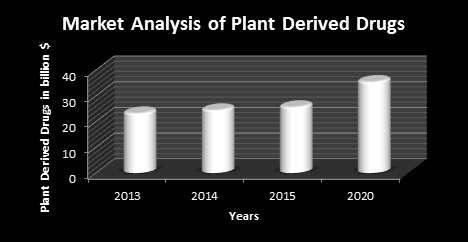
Global Market Analysis of Traditional Chinese Medicine (TMC)
Traditional Chinese Medicine Hospital industry in China has accelerated its development. From 2012 to 2022, value-added for this industry is expected to increase at annualized rate of 12.8%, higher than China's GDP growth during the same period of about 6.5%.
Global Markets Analysis for Nutraceuticals
The global nutraceuticals market should reach $285.0 billion by 2021 from $198.7 billion in 2016 at a compound annual growth rate (CAGR) of 7.5%, from 2016 to 2021.
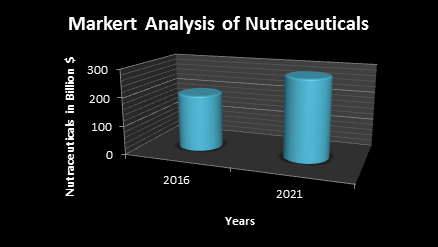
Global Market Analysis of Natural Skin and Hair care Products:
Organic skincare products dominated the global demand, and the segment generated revenue exceeding USD 3 billion in 2015. Organic hair care products are anticipated to grow at a CAGR of over 9% from 2016 to 2025. The increasing importance of natural ingredients for providing dandruff protection, hair fall control, and shining effect is expected to have a favorable impact on the industry.
Asia-Pacific is expected to witness significant gain over the forecast period. Increasing consumption of cosmetic products in emerging economies such as China and India in light of new product launches along with rising concerns towards aging, UV effects and hair fall will fuel organic personal care industry growth.
Global Markets for Marine-Derived Pharmaceuticals
The global market for marine-derived drugs by type was around $4.8 billion in 2011, which is expected to be around $5.3 billion in 2012. This global market is forecasted to reach $8.6 billion by 2016 at a compound annual growth rate (CAGR) of 12.5% for the five year period of 2011 to 2016.
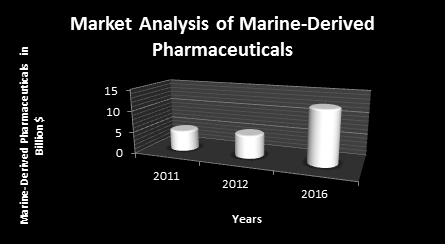
Global Markets and Technologies for Biofuel Enzymes
The global revenue for biofuel enzymes totaled $623.0 million in 2014, and should total $652.1 million in 2015 and $1.0 billion by 2020, registering a compound annual growth rate (CAGR) of 10.4%.
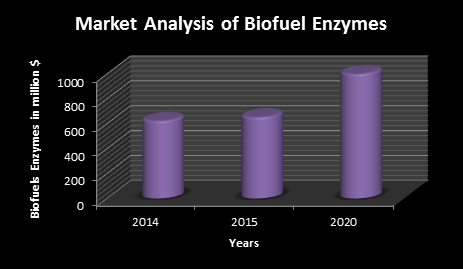
Target Audience:
The target audience will be various experts from the associations and societies in natural products chemistry, microbiology, food science, botany, pharmacognosy, phytochemistry, natural products, homeopathy, Ayurveda, traditional medicine practitioners, analytical chemistry, Plant Biochemistry, Herbal Drugs, Plant Physiology, Industrial Pharmacognosy, Horticulture, Ayurvedic, plant toxicology etc.
Funds allotted to Natural Medicine Research:-
Funding’s for Natural Medicine
The National Center for Complementary and Integrative Health (NCCIH) at the National Institutes of Health (NIH) funds and conducts research to help answer important scientific and public health questions about complementary health approaches. NCCIH works to determine what is promising, what helps and why, what doesn’t work, and what is safe.
Funding for Research on Complementary and Alternative Medical Approaches (NIH)
Visualizing your tumor as an enemy base being fired upon by your body's fleet of jet fighters or having tiny needles inserted all over your body may sound like strange ways to treat disease, but more and more often, patients are turning to unconventional treatments for a variety of ailments either instead of, or in addition to, mainstream medical practices.
But what do we really know about the efficacy of such interventions?
Anecdotal evidence suggests that some complementary and alternative practices work, but very few of these treatments have been studied systematically. This is precisely why two different entities, the Office of Cancer Complementary and Alternative Medicine (OCCAM) and the National Center for Complementary and Alternative Medicine (NCCAM), have been created within the National Institutes of Health (NIH).
Conference Highlights
- Natural Medicines
- Natural Products
- Traditional and Alternative Medicines
- Herbal Drugs and Formulations
- Ayurvedic Medicines
- Homeopathic Medicines
- Siddha and Unani Medicine
- Medicinal Plants
- Natural Products as Medicines
- Drugs from Natural Sources
- Toxicological Studies of Plant Products
- Ethnopharmacology
- Herbal Cosmetics and Nutraceuticals
- Crude Drugs and Plant Products
- Pharmacognosy and Phytochemistry
- Marine Natural Products
- Marine Biotechnology
- Marine Natural Products Drug Discovery
- Natural Medicines from Animals
To share your views and research, please click here to register for the Conference.
To Collaborate Scientific Professionals around the World
| Conference Date | November 05-06, 2018 | ||
| Sponsors & Exhibitors |
|
||
| Speaker Opportunity Closed | Day 1 | Day 2 | |
| Poster Opportunity Closed | Click Here to View | ||
Useful Links
Special Issues
All accepted abstracts will be published in respective Our International Journals.
- Journal of Natural Products Chemistry & Research
- Journal of Pharmacognosy & Natural Products
- Journal of Medicinal & Aromatic Plants
Abstracts will be provided with Digital Object Identifier by




